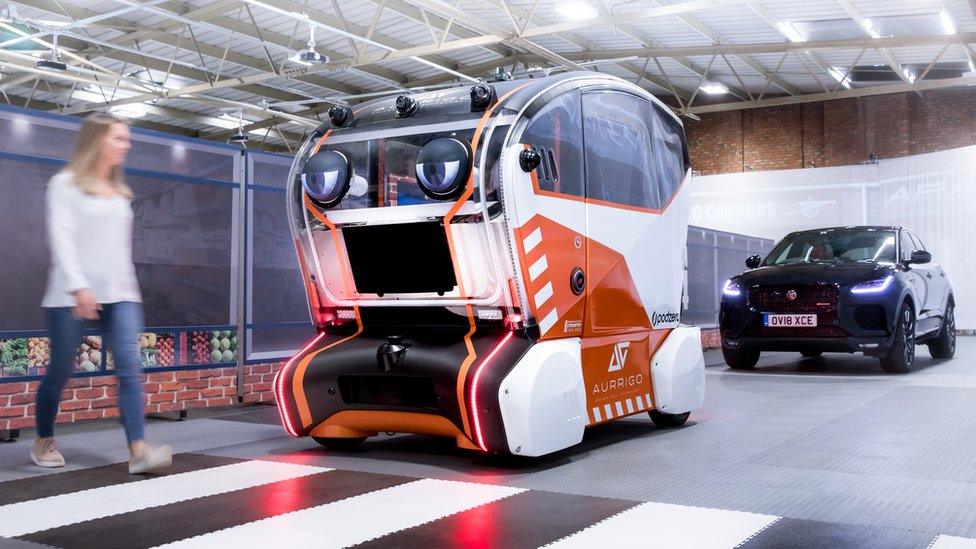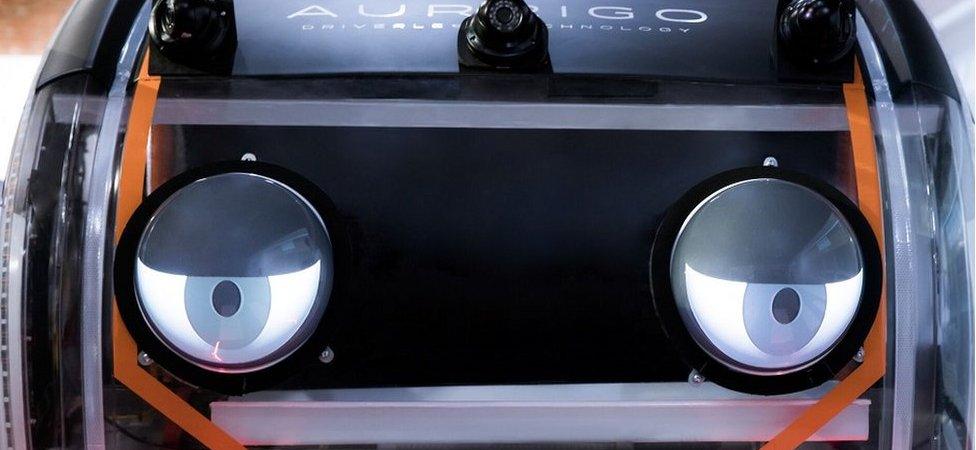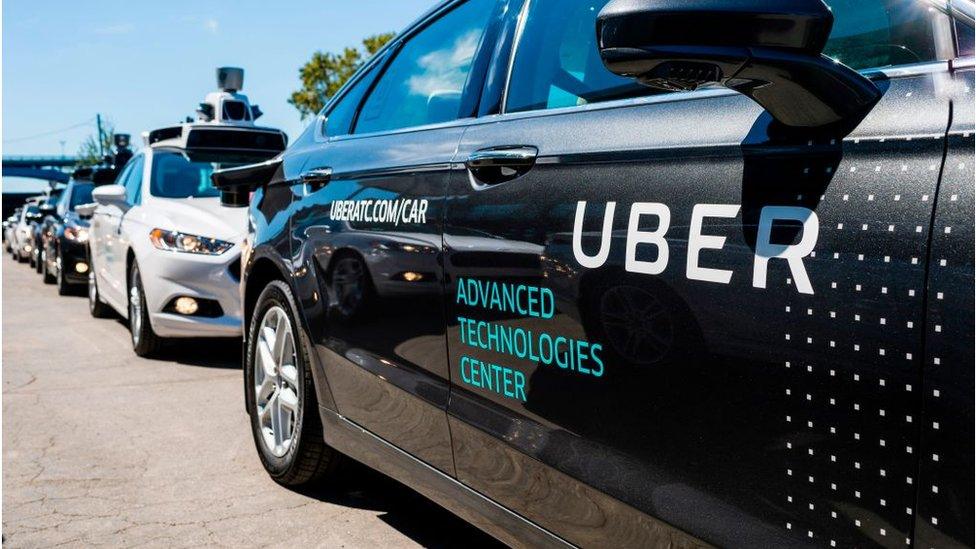The robot that watches as you cross the road
- Published

British carmaker Jaguar Land Rover is testing a robot that catches your eye as you cross the road.
The self-driving pods, which feature large "virtual eyes", are being trialled in Coventry to try to increase humans' trust in autonomous cars.
An American Automobile Association study found that 63% of people would feel less safe if they had to share a road with a self-driving car.
The carmaker is researching facial cues to hopefully put people more at ease.
"As our relationship with self-driving technology increases, we need to ensure it is designed around human behaviours and needs," Jaguar Land Rover's future mobility research manager Pete Bennett told the BBC.
"Our aim is to develop features that all road users are comfortable with."
Increasing trust
Before people walk across a pedestrian crossing, they typically check to make sure that drivers in oncoming traffic have registered that they are about to cross, and are slowing down their vehicles.
As part of the trial, about 500 people are being studied as they walk across fabricated street scenes.
Self-driving pods built by British firm Aurrigo have been modified to feature a large pair of animated eyes. When the car sees a person crossing the road, it slows down to a halt and makes direct eye contact.
Jaguar Land Rover's cognitive psychologists and engineers analyse the pedestrians' behaviour, recording the "trust levels" in each person before and after they encounter the autonomous pod on the road.
The aim is to work out just what it would take to make pedestrians feel confident that a self-driving car would indeed notice them and stop if they crossed the road in front of it.

Analysis:
By Theo Leggett, BBC business correspondent

Endearing, silly or unnerving?
This isn't a wholly new idea. I witnessed something rather similar at the Massachusetts Institute of Technology a few years ago, for example.
That was something the researchers at MIT's Media Lab had knocked up in their workshop. This time, a major manufacturer's involved, but the problem they're trying to address is exactly the same. How to you persuade pedestrians that a self-driving vehicle isn't about to mow them down?
The solution seems to be to give a car a friendly face - and make it respond positively to the people it sees. JLR has gone so far as to give its pods proper humanoid "eyes" with big heavy lids. It's up to you whether you find them endearing, slightly silly or simply unnerving.
This may look like a gimmick - but it certainly does draw attention to a serious issue. And perhaps if autonomous cars can be given a bit of personality and charm, people will be more willing to accept them.
After all, as any Disney fan would know, it clearly worked for Herbie.

Changing relationship
Professor Alan Woodward, an expert in computer science at University of Surrey, says the trial shows that the technology industry now values the importance of design, as much as the technology itself.
"In the first era of computers, we saw a lot of 'machine arrogance' - right up until the late 1990s, ATMs would say 'wait', not 'please wait'. The machine was instructing the human," he told the BBC.
"[The industry] recognises that people respond much better to computers if they recognise that the computers are there to serve the humans, and not the other way around.
"Over time we have noticed that if you make computers interact like a human being, you take more notice of it, but also you trust it more."
While he does not think that Jaguars will come with big eyes in the future, he believes that it is important to get humans to trust robots more, and that by the time facial detection technology like this makes it to the market, humans' relationships with cars may well have changed from what they are today.
The study is part of Jaguar Land Rover's contribution to UK Autodrive - a three-year-long collaborative consortium consisting of autonomous driving academics, car manufacturers, technology businesses and local government authorities.
The project is running trials of self-driving cars in Coventry and Milton Keynes to understand the technology and logistics required to introduce self-driving technology to the UK.
Aurrigo's self-driving pods - without the large virtual eyes - will be driving around pedestrianised areas in Milton Keynes from August to October as part of a separate trial into self-driving technologies.
- Published27 August 2018

- Published12 June 2018